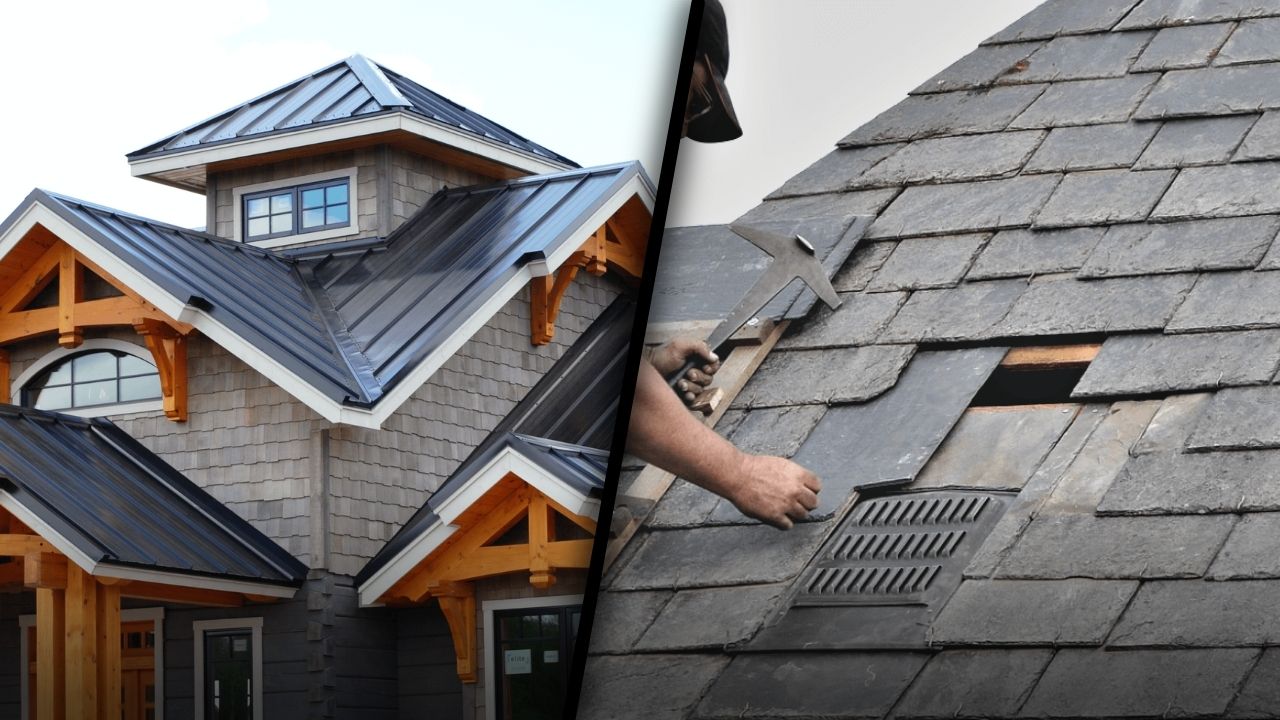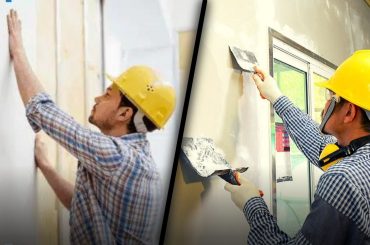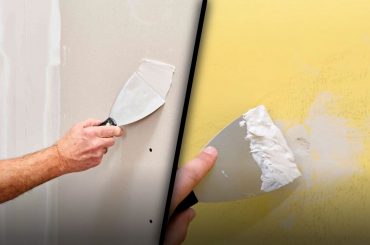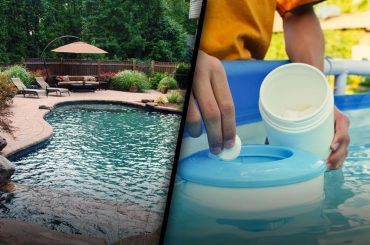Residential roofs are commonly composed of metal or asphalt shingles. Making an informed decision requires consideration of their differences.
There are two types of roofing systems that are most often used in the U.S., asphalt shingles and metal roofing. One of the most common questions I was asked by homeowners when I worked as a roofer was, “Which is better?”? Your priorities will determine the answer.
Metal Roof vs Shingles: Cost
You can’t beat the price and ease of installation of asphalt shingles. Installing metal roofs requires specialized knowledge and can be expensive.
Asphalt shingles average between $7,000 and $10,000, whereas metal roofs average between $12,000 and $20,000. It depends on the roofing product and where you live. You’ll have to repair metal roofs less often and they’ll last longer.
Winner: In the short run, asphalt shingles. Having said that, if you’re looking at the long term, metal will always win.
Metal Roof vs Shingles: Appearance
An attractive roof is one of the most important features of a house. A home’s curb appeal can make it stand out or make it disappear.
The appearance of asphalt shingles has evolved quite a bit over the years, with some shingles resembling wood shakes, tiles, and even slate. Additionally, they can add depth to a scene. Overson Roofing contractor Mike Smyth says each shingle can have lighter and darker granules to give it a 3D or multicolored appearance.
Different solid colors are available for traditional metal roofing. In addition to asphalt shingles, they can also be manufactured to resemble other roofing materials.
Winner: You decide! Neither roof system lacks an aesthetically pleasing appearance, and appearances are subjective. If you decide to replace your roof, keep in mind the roofs in your neighborhood. Having a roof that stands out might not be what you want.
Metal Roof vs Shingles: Durability
Homeowners spend a lot of money on roof repairs and replacements. It is better to choose a roof that is durable to ward off these threats. The type of roof you choose is particularly important in areas with extreme weather.
Asphalt shingles’ lifespan is reduced by constant thermal cycling. Water can enter, freeze and dry in asphalt because it is absorptive.
However, metal roofs do not absorb water. As an added benefit, they feature fasteners like clips or slotted screws that permit thermal movement of the metal without causing it to deteriorate over time, according to Classic Metal Roofing Systems President Todd E. Miller. Accordingly, metal roofs typically last 50 to 70 years, whereas asphalt shingles last 20 to 25 years in any climate.
Winner: Metal roofs.
Metal Roof vs. Shingles: Maintenance
Maintenance must be performed to ensure a roof’s longevity, even though it’s not a fun task.
Asphalt shingles require a lot of maintenance, as they require penetration through the roof and use adhesives, metal flashings, and sealants to keep them in place. A sealant needs to be replaced over time because it deteriorates over time. As well as rubber pipe boots, which are the flashings that protect plumbing pipes coming through the roof, they can also wear out and need to be replaced when they break down.
Embedding penetrations with matching metal is the best way to protect a metal roof. Miller says that sealants serve as a first line of defense, but true watertightness comes from flashing construction and how it channels water away from the roof.
Metal-covered rubber pipe boots are often used on metal roofs, not only for aesthetic purposes, but also as a way of protecting the soft rubber from the sun. As a result, its lifespan is greatly extended.
Winner: Metal roofing. Metal roofs require much less maintenance than asphalt shingles, even though their roofs aren’t as durable.
Metal Roof vs. Shingles: Additional Features
Fire and Hailstorm Resistance
Metal roofs are more resistant to fire than asphalt shingles. In addition, metal roofs can’t easily be dented by hail, despite what is commonly believed. Hail impacts are more easily handled by metal roofs than asphalt shingles.
Winner: Metal roofing.
Eco-friendliness
It is possible to recycle both. Roofs made of metal are frequently scrapped, especially aluminum roofs, which are highly valuable. Although asphalt shingles can be separated and recycled, the process is much more costly. Asphalt shingles end up in landfills every year in the amount of 11 million tons.
Most metal roofs contain some recycled materials, unlike asphalt shingles. In addition, durability is a concern. Matt Daigle, founder of Rise, a platform that supports homeowners in renovating their homes and building sustainable ones, says metal roofs last much longer than asphalt shingles, so they don’t fill landfills with as much waste material.
Additionally, some asphalt shingles produce toxic fumes when recycled, making them an environmental hazard.
Winner: Metal roofing.
Energy Efficiency
Metal roofs are mistakenly believed to be hot. In fact, the opposite is true. Due to its high reflectivity, metal roofs help to keep their owners cooler than most other roof types because they absorb less heat. You can save between 10 and 25 percent by using this method, Daigle says.
Winner: Metal roofing.





